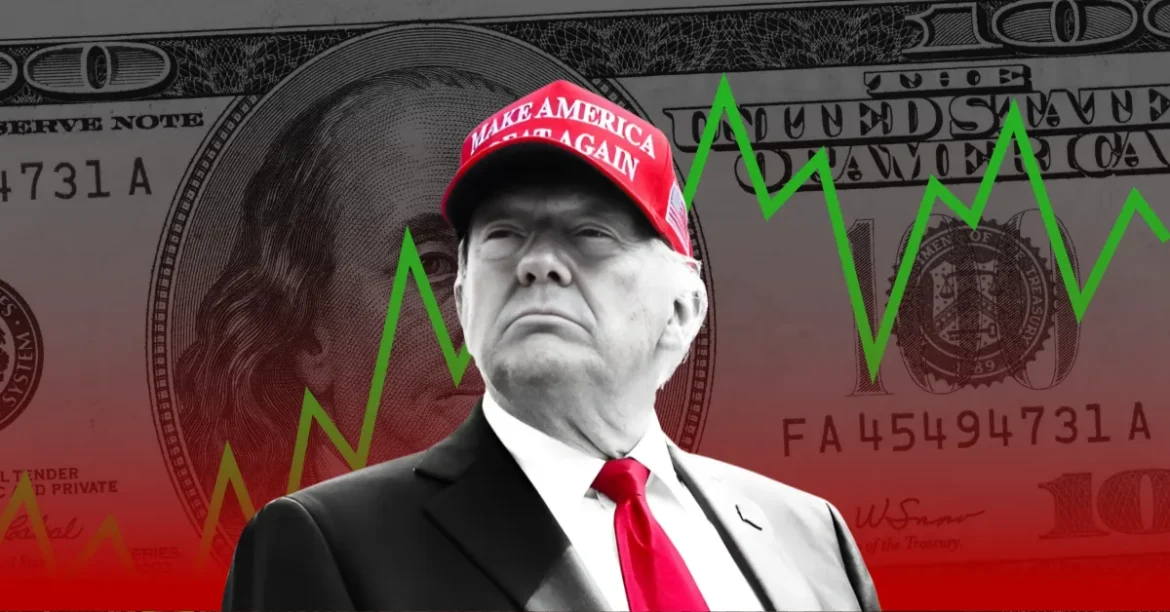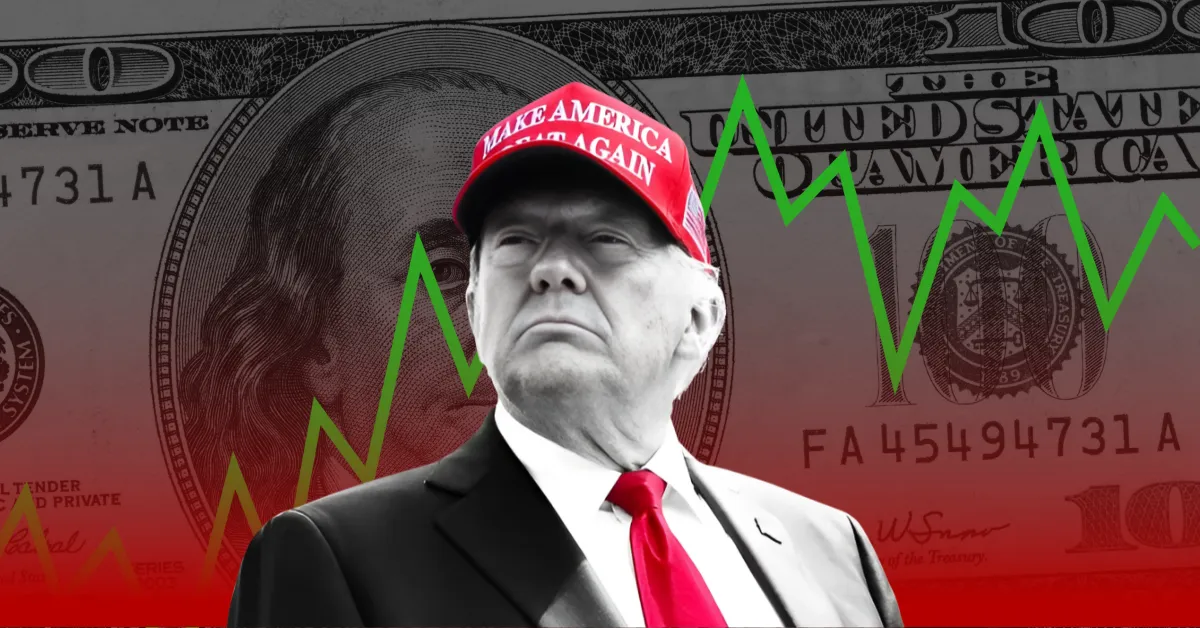President Donald Trump’s recent foray into the cryptocurrency space has drawn intense scrutiny, sparking debate over regulatory reforms, potential conflicts of interest, and the broader implications for U.S. crypto policy and governance. This report examines the unfolding controversy surrounding Trump’s crypto dealings, the legislative response, and what these developments mean for American financial oversight.
The Trump Crypto Phenomenon: From Memecoins to Stablecoins
Donald Trump’s engagement with cryptocurrency started notably with the launch of a memecoin shortly before his presidential inauguration, which critics labeled a “cash grab” buoyed more by hype than intrinsic value. This initial venture escalated swiftly into a large-scale enterprise involving substantial financial backing from investors eager to align with Trump’s brand. At a high-profile dinner, over 200 wealthy guests reportedly paid millions to meet Trump in person—highlighting the magnetism his persona holds in the crypto sphere.
Moreover, the Trump family gained control of World Liberty Financial, a crypto firm that raised over half a billion dollars, signaling deeper involvement beyond mere promotional activities. This firm introduced a stablecoin in March, and recent deals leveraged this token to facilitate multi-billion-dollar investments, such as a $2 billion stake in Binance via an Abu Dhabi-based investment firm.
Adding to this phenomenon was Trump’s announcement of a “U.S. Crypto Reserve,” posited as a government-backed cryptocurrency stockpile. While the exact implementation and ramifications remain opaque, this move illustrates an ambitious push towards legitimizing crypto assets within official policy frameworks.
Legislative Battles and Regulatory Responses
Unsurprisingly, the surge of Trump-related crypto activity has triggered bipartisan alarm. Democrats and some Republicans have criticized the potential for conflict of interest and self-dealing, given the Trump family’s financial stakes in crypto ventures benefiting from new federal policies and investment flows. Congressional opposition manifests in both rhetoric and legislative action:
– “America Is Not for Sale” Bill: This new bill targets Trump’s crypto dealings explicitly, aiming to curtail perceived exploitations of public office for private gain through crypto channels. It seeks to block loopholes allowing elected officials and their families to benefit from digital asset regulations they influence.
– GENIUS Act: Republicans are pushing to pass this bill which aims to regulate stablecoins and other cryptocurrencies. Although it has faced opposition, particularly from Democrats wary of inadequate safeguards, it represents the first significant crypto legislation to gain momentum in the Senate.
– Crypto Safeguard Legislation: A separate stablecoin bill recently passed a critical Senate vote (66–32), signaling progressive regulatory oversight. However, critics note it falls short of fully mitigating risks related to insider trading, fraud, and the Trump family’s financial entanglements.
– Repealing Crypto Tax Rules: Trump signed a resolution repealing controversial IRS rules on decentralized finance brokers, a move hailed by crypto advocates as a victory. This repeal appears to reflect a crypto-friendly stance aiming to reduce regulatory burdens, though it adds complexity to enforcing accountability.
Conflicts of Interest and Corruption Concerns
Public unease centers on the intertwining of Trump’s official capacity and his private crypto investments. Several issues underscore this concern:
– The Trump family’s control over major crypto firms coincides with federal policy announcements benefiting said companies, raising suspicion of orchestrated influence.
– The scale of investor involvement—such as the multimillion-dollar crypto dinner—suggests potential pay-to-play dynamics not commonly seen in other administrations.
– Legislative attempts by Democratic lawmakers to require records preservation from the U.S. Securities and Exchange Commission (SEC) point toward ongoing investigations or oversight intentions regarding Trump-related crypto dealings.
These factors contribute to bipartisan calls for tougher legislation that explicitly prohibits elected officials and their families from profiting from government-endorsed crypto ventures.
The Crypto Industry’s Political Pivot
Cryptocurrency enthusiasts initially welcomed Trump as a champion against traditional political frameworks, appreciating his deregulatory zeal. However, growing scandals linked to the “Trump crypto grift” have started to fracture this support. Investors and policymakers alike are wary of the implications of concentrated token ownership by Trump and associates, which could result in market manipulation or sudden price collapses upon large-scale selling.
Additionally, the failed or stalled progress of earlier crypto bills underscores the challenge of balancing innovation with oversight. The involvement of Big Tech and crypto lobbyists seeking favorable terms complicates legislative outcomes, provoking accusations that Republicans may be overlooking ethical considerations in favor of industry gains.
What Lies Ahead: Implications for U.S. Crypto Policy
The current controversy serves as both a warning and a turning point for the regulation of digital assets:
– Regulatory clarity is expanding, with the Senate advancing first-of-its-kind legislation to regulate stablecoins. While imperfect, these laws establish a framework for government involvement in cryptocurrency.
– Political oversight will intensify, especially as Congress investigates the intersection of private business interests and public policy, spotlighting risks of presidential conflicts of interest.
– Market integrity concerns will shape future bills, pushing for explicit safeguards against fraud, insider trading, and abuse of power within crypto markets.
– Crypto’s political image is evolving, moving from rebellious innovation embraced by fringe supporters to a sector demanding transparency, ethical governance, and accountability.
Conclusion: A Defining Moment for Crypto Governance
Donald Trump’s aggressive push into the crypto arena, combined with the financial interests of his family tied to emerging stablecoin ecosystems, has injected unprecedented tension into the U.S. policymaking process. The legislative response—combining burgeoning regulation with fierce partisan debate—reflects a nation grappling with how best to harness innovation while protecting democratic integrity and financial stability.
As “America Is Not for Sale” legislation and the GENIUS Act evolve, they symbolize more than mere legal texts; they epitomize a confrontation between safeguarding public trust and navigating the disruptive, lucrative potential of cryptocurrency. The outcome will shape the future trajectory of American digital finance, the role of government in emerging technologies, and the enduring question of whether financial power can be wielded responsibly amidst political authority.





